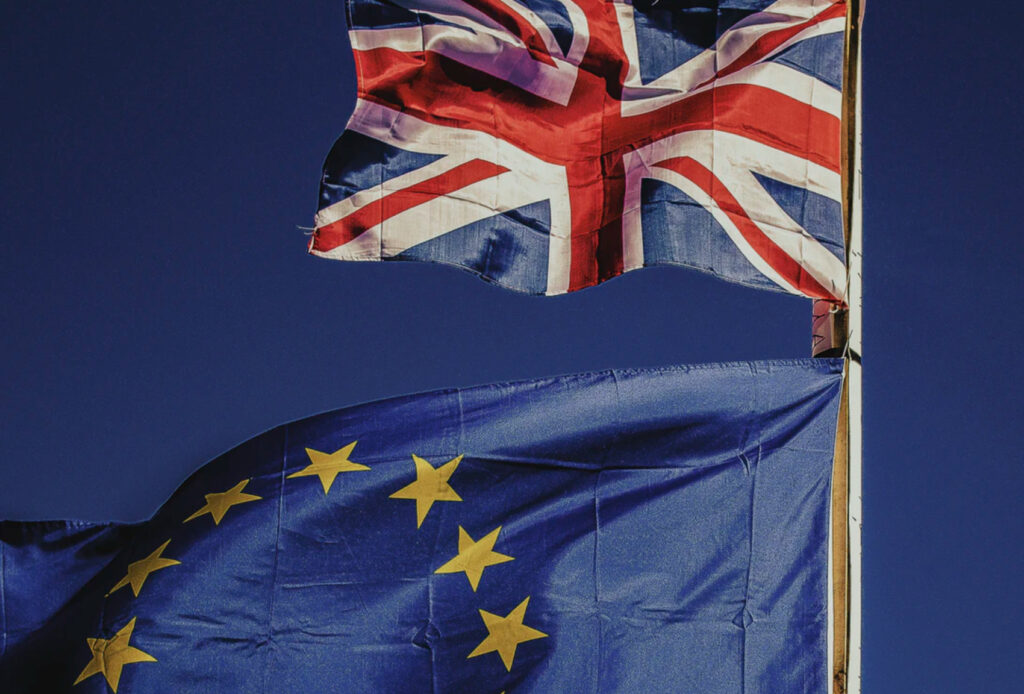“America is back!”
This declaration, made by President Joe Biden, was announced at the Munich Security Conference. After just two months in office, Biden has already been taking on the daunting task of restoring and cementing relationships in Europe.
In late February, Biden appeared virtually at the Munich Security Conference, an annual international security conference held in Germany. Prime Minister of the United Kingdom Boris Johnson came out of the meeting similarly declaring “As you’ve seen and heard earlier, America is unreservedly back as the leader of the free world and that is a fantastic thing.”
But while things might appear rosy at first glance, the path to restoring American leadership in the European sphere and reestablishing transatlantic diplomacy is not going to be smooth sailing. There are several key issues that will be sure to dominate the future of transatlantic relations in the coming months — and the next four years.
Up first on the agenda is reestablishing a positive working relationship with the North Atlantic Treaty Organization (NATO).
The multilateral security organization, founded in 1942 and headquartered in Brussels, Belgium, was always a sore point for Donald Trump. The former U.S. President was vocal about his dislike of the alliance and questioned its continued use and whether or not other NATO members were pulling their weight. Conversely, Biden sees the recommital of the United States to its NATO allies as one of the most important points on his policy agenda. He made a point of calling NATO Secretary General Jens Stoltenberg in the very first week of his presidency. This singular phone call ensured the public, and the world, that America was re-committing itself to the organization — signaling a critical shift away from the previous outlook of the Trump administration.
He also sought to correct one of the most damaging military decisions that the Trump administration brought onto NATO. During his presidency, Trump started the process of withdrawing nearly 12,000 troops from Germany, a key NATO ally. The move surprised the Germans and even some members of American military leadership. The United States views Germany as a critical strategic partner, which is evident with its 43 different American military bases.
In the past few decades, the United States has had positive military relations with the Germans, and there has been no reason to change course on the country’s policy. The U.S. Department of Defense faced bipartisan condemnation from this decision because it made NATO look fragmented and weak.
However, with each change in presidential administrations, the Defense Department carries out a “global force posture review,” which places all military decisions on pause. The Biden Administration has initiated a freeze on pending military action, such as pulling the U.S. forces out of Germany, and the administration will be reevaluating the decision.
Already with the freeze in place, and no concrete determination to keep American troops in Germany, the German government is pleased and ready to work with Washington. German Defense Minister Annegret Kramp-Karrenbauer said that, “this signal will be noticed and well understood. It is now up to us to take the hand that Washington has reached out with.”
Germany has a lot to lose if the United States withdraws its presence. Over 100,000 Americans are currently living in Germany — the largest American community outside the United States. Should the government lose the trust of the Biden administration, the loss of 100,000 people in their communities would be incredibly hurtful to their economy. They also lose prestige and abilities to train their German military forces alongside the United States should the Defense Department continue to pull out from the region.
On the American side, the United States would lose the country’s only hospital capable of treating trauma patients in the region. Landstuhl Regional Medical Center has served as the trauma center for all military personnel wounded in the Middle East, Europe and Africa, since its opening in 1953. It is beneficial for both sides to work out a favorable negotiation that can carry them through the future. The United States’ maintenance of positive relations with Germany is key to its stable presence in the region.
Across the English Channel lies another set of problems for Biden. For Boris Johnson, a solid working relationship with the Biden administration will ensure Britain can resume its “special relationship” with the United States — a historical and cultural relationship that started in Winston Churchill’s era.
This relationship exists because the heads of state have emphasized the closeness of American and British values culturally, politically, and economically. Both Biden and former President Barack Obama were against the Brexit decision, but now that it has been fully implemented, Biden remains committed to helping America’s ally across the pond. In fact, Johnson was the very first European head of state to receive a call from Biden after his inauguration.
Going forward, Johnson will be looking to negotiate a free trade agreement for the United Kingdom in a post-Brexit world. Biden has made it clear that he will not be negotiating a large free trade agreement anytime soon, since the U.S. needs to make major investments at home. But, it’s possible that a smaller agreement could be worked out before the U.S. Trade Protection Authority Act expires in April 2021. Any deal made before that point could be easily slipped through Congress, since the Democrats control the U.S. House of Representatives and are tied with Republicans in the Senate, with Vice President Kamala Harris as the tie vote. But after April, it will be more challenging.
Another hot topic for the United States and the European Union, in particular, is the China debacle. The EU struck an important investment deal with China less than a month before Biden came into office. Biden’s transition team privately lobbied the EU to wait, and China capitalized on this brief window of opportunity and signed the deal before Biden could be sworn in; even though they conceded some positions to the EU to make it happen. Amid growing economic competition, an ongoing trade war and a increased tension between the United States and China, Europe has a precarious role to play — a delicate balance between economic opportunity and historical allyship.
It is helpful for transatlantic relations, however, that both the Trump and Biden administrations have declared the offenses against the Uyghur Muslim minority in China a genocide, especially since the EU and UK have made similar declarations. Going forward, Biden and his team will be looking to sort out their positions on China and will eventually need to converse with the EU to see where they overlap on policy. A strong policy on China will most likely need to be accepted by the United States’ allies in order for meaningful change to happen.
Yet another complicating issue for Biden and the Europeans is the Nord Stream 2 pipeline set to deliver Russian gas to Germany. Germany has built this pipeline with hopes of diversifying their energy resources, but it leaves the EU vulnerable to more Russian influence within the energy and economic sectors. The deal has been highly controversial in Brussels, and within Washington D.C. EU member states are unable to agree on a common position on the pipeline. Most notably, some countries are worried about Russia’s growing involvement in Europe. The public criticism of Russia has been intensified since the poisoning of Russian opposition leader Alexei Navalny by the Kremlin in September 2020. France has publicly said they are against the pipeline, but will let the Germans make the final decision on its outcome. The United States is expected to release sanctions on the Russians soon, but the Germans are expected to remain unscathed for the time being.
Biden certainly has his work cut out for him across the Atlantic. Biden is entering a pivotal era of transatlantic relations, especially after the last four years, and his decisions over the next few months will dictate how the rest of his presidency transpires. Recommitment to NATO, dealing with a post-Brexit UK, relations with China, and the Nord Stream 2 will all pose tough challenges for the administration to conquer.







